Angela Bassett’s most prized possession is her art collection. One of her favorite pieces is a painting that was sold to her for $400 by an artist at the Savannah College of Art and Design and has been mistaken for an $8,000 work by Ernest Crichlow. Another is a life-size sculpture of Sojourner Truth, by artist Manuelita Brown, that sits in the garden of her California home. The statue was a gift from her husband, fellow actor Courtney B. Vance, and their children for her 60th birthday. Her newest piece is a Ferrari Sheppard painting of a Black woman reclining on a couch that the artist says was inspired by Bassett herself.
“He said that, so I’m going to believe him,” the actress states.
As tough as it might be to imagine the woman with more than 107 acting credits to her name ever taking a break, the 64-year-old wife and mother, whose working days are long and vacations short, welcomes her demanding schedule. She appreciates being afforded the opportunity to continue practicing her craft, 39 years after she earned a Master of Fine Arts degree from the Yale School of Drama.
“At one point early on, just going to work as an actress consistently—for me, that was the soft life,” Bassett admits. “At the beginning of the year on New Year’s—yay! On your birthday—yay! ‘I’m working—yes!’”
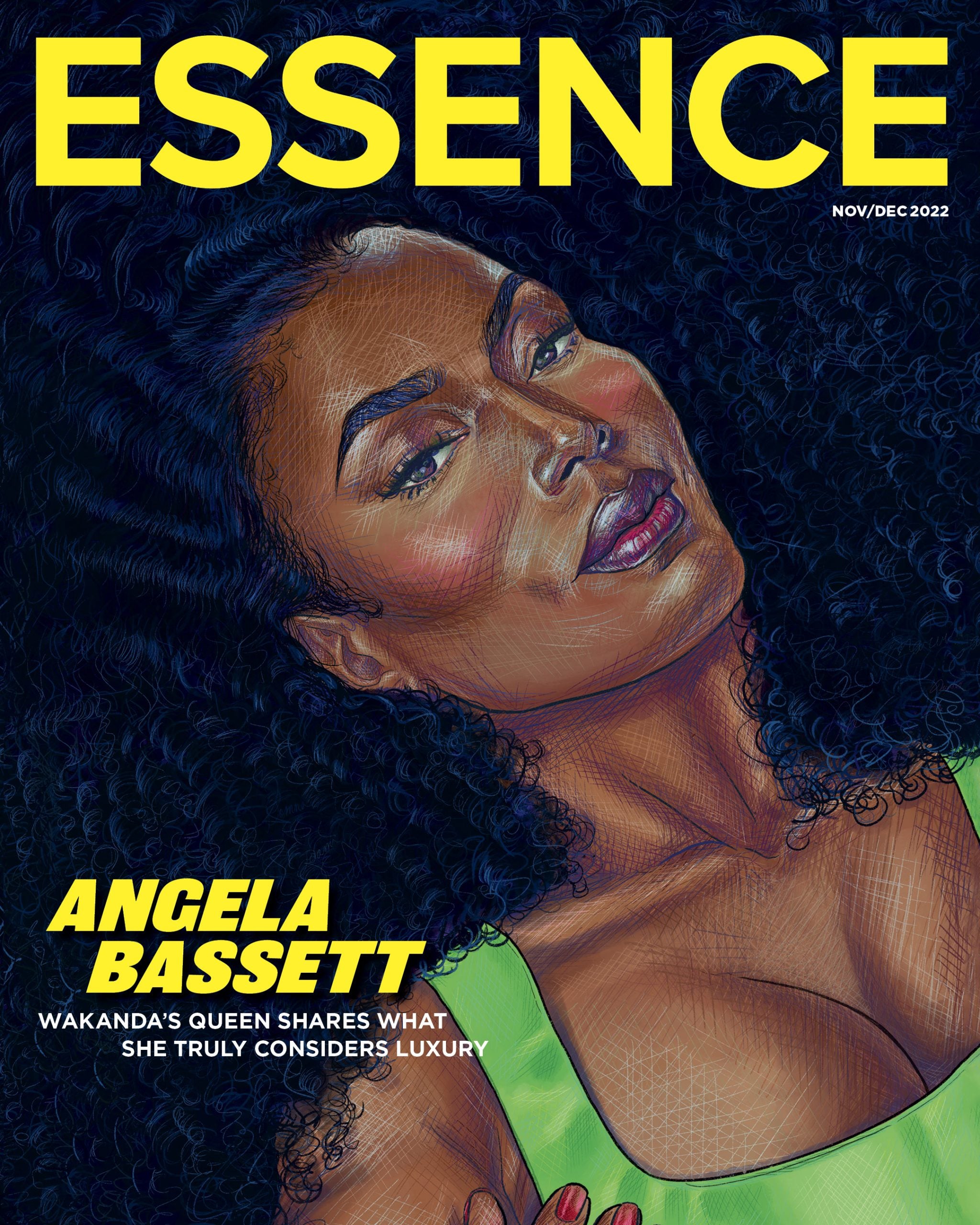
Described by her husband as “a country girl from St. Pete’s,” Bassett was born in New York City and spent a few years in her aunt’s care in Winston-Salem, North Carolina, before her mother relocated her and her sister to St. Petersburg, Florida, when she was 4.
“I’m a Florida girl but with a New York vibe,” says Bassett, who’s in the early days of promoting the highly anticipated Black Panther sequel, Black Panther: Wakanda Forever.
“I’m chill, I’m easy—until I’m not. It depends on the moment. I want it done right, I want it fun, I want us together—I want a vibe, energy, then I want to relax. Beach, sun, kindness, generosity, that sort of Southern hospitality. I want it all to feel comfortable, relaxed, appreciated. When we get together, I want an experience. My love language is time spent—so come on, let’s have a good time together.”
Some of her best times have been in her birthplace, which she considers her favorite city in the world. It’s art of a different kind that colors her explanation. “I love theater in New York City,” she says. “I have literally left Courtney on the street grabbing the last ticket to a show. He’s like, ‘Okay, go, baby, go.’ And I’m like, ‘Thank you. Come back in two and a half hours.’ He understands me. Theater—it’s sacred. It’s like church almost.”
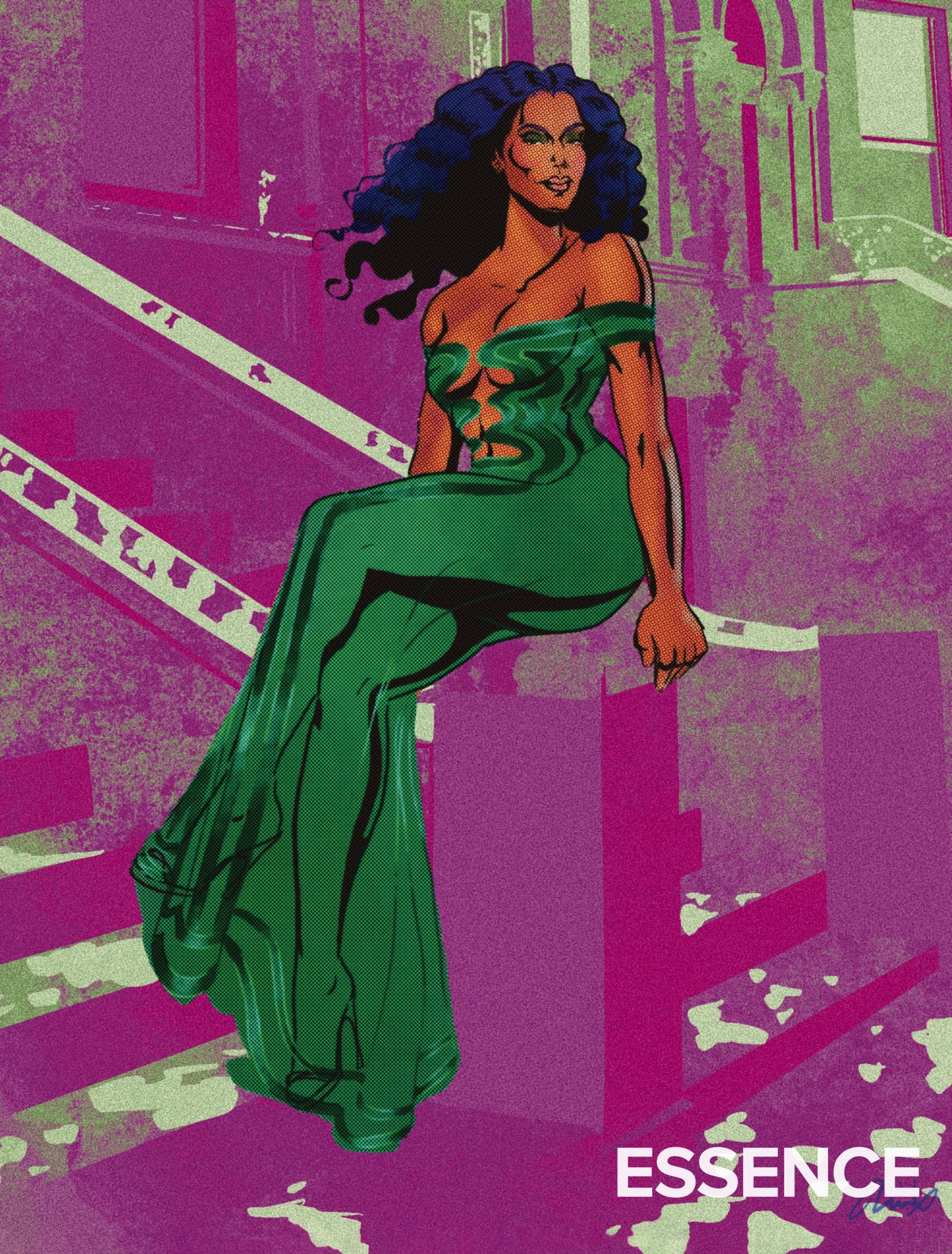
In the way some might derive their life’s purpose from words spoken from a pulpit, Bassett got hers from lines performed onstage—specifically, those said by James Earl Jones when he played Lennie in the 1974 production of Of Mice and Men on Broadway.
“He’s my inspiration,” Bassett says. “I remember being the last one in the theater, crying into my hands because of the performance I had seen—how real he made it for me, he and the others on that stage. I went home and I pursued acting with a vengeance, trying to figure out—how do you do that? How do you make people feel the way he made me feel? Whenever I come to New York, I come to see other actors and to have that experience all over again.”
Bassett did indeed figure out how to make audiences feel those emotions Jones once dredged up inside of her; and she did it very early on in her career, most notably with her 1993 role as Tina Turner in What’s Love Got to Do With It. Of what’s considered her breakout performance, Bassett acknowledges the opportunity was one “where you’re called upon to show up in ways you had not even imagined as an actor—emotionally, physically, humbly and fiercely.” Yet she insists that no one project made her feel as though she had arrived as an actress. “There are different roles at different moments that speak to you,” she explains. “They speak to your journey, your transcendence, your trajectory.”
One of the earliest of these for Bassett was reciting Langston Hughes’s poems onstage at the age of 15. She would continue to perform in plays throughout college and after graduation, when she moved to New York and garnered roles in what she describes as the “off-off-off-Broadway, no-pay showcase.” “They pay your subway token,” she clarifies, laughing. During that time, she says, an arrival of sorts was playing Antigone in the Sophocles play by the same name. Richard Schiff, who also appears in Black Panther: Wakanda Forever, was her director.
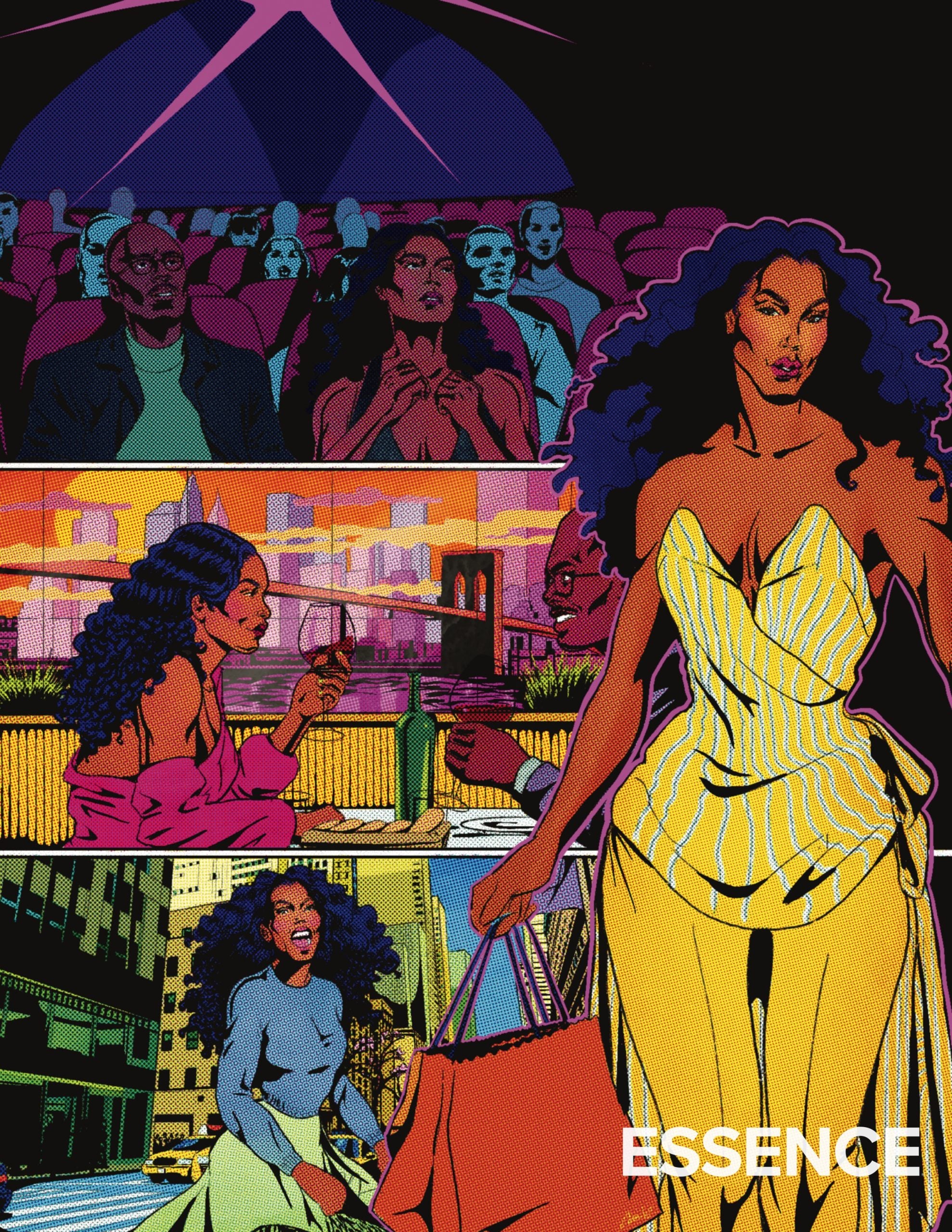
When Bassett moved to L.A. to see if she could make a name for herself there, it was John Singleton who cast her in her first significant role—his own directorial debut, 1991’s Boyz n the Hood. Bassett reveals she didn’t yet believe she had made it, but she did think she was on her way. “You have to stay hungry, and you have to remain hungry,” she says. “I was the wife of, the mother of. I wasn’t number one on the call sheet—if that’s important to you, which it’s not to me, because as we say, you can do a lot with a little and make a great impact. Judi Dench won an Oscar with 12 lines. So we don’t have to fool ourselves into believing that you have to be first and foremost. But that was a moment that encouraged me.”
Bassett soon received an Oscar nod herself, for Best Performance by an Actress in a Leading Role, for her portrayal of Turner at the 66th Academy Awards. But the accolade did not necessarily lead to more acceptance in Hollywood. “That’s perhaps when I thought, Okay, I’ve made it—but then the phone didn’t ring for a year and a half after that,” she remembers. “But I’ve made it, I thought. Yes, you’ve made it, but now there are other things to consider.”
She says she had to tell herself, “You were number one. How do you remain number one? It’s not always possible. Interest in our stories ebbs and flows over time, and not always are women like me, darkened by the sun, cast as the lead. So you have to look for other opportunities, where you can have a voice and make your mark and say something.”
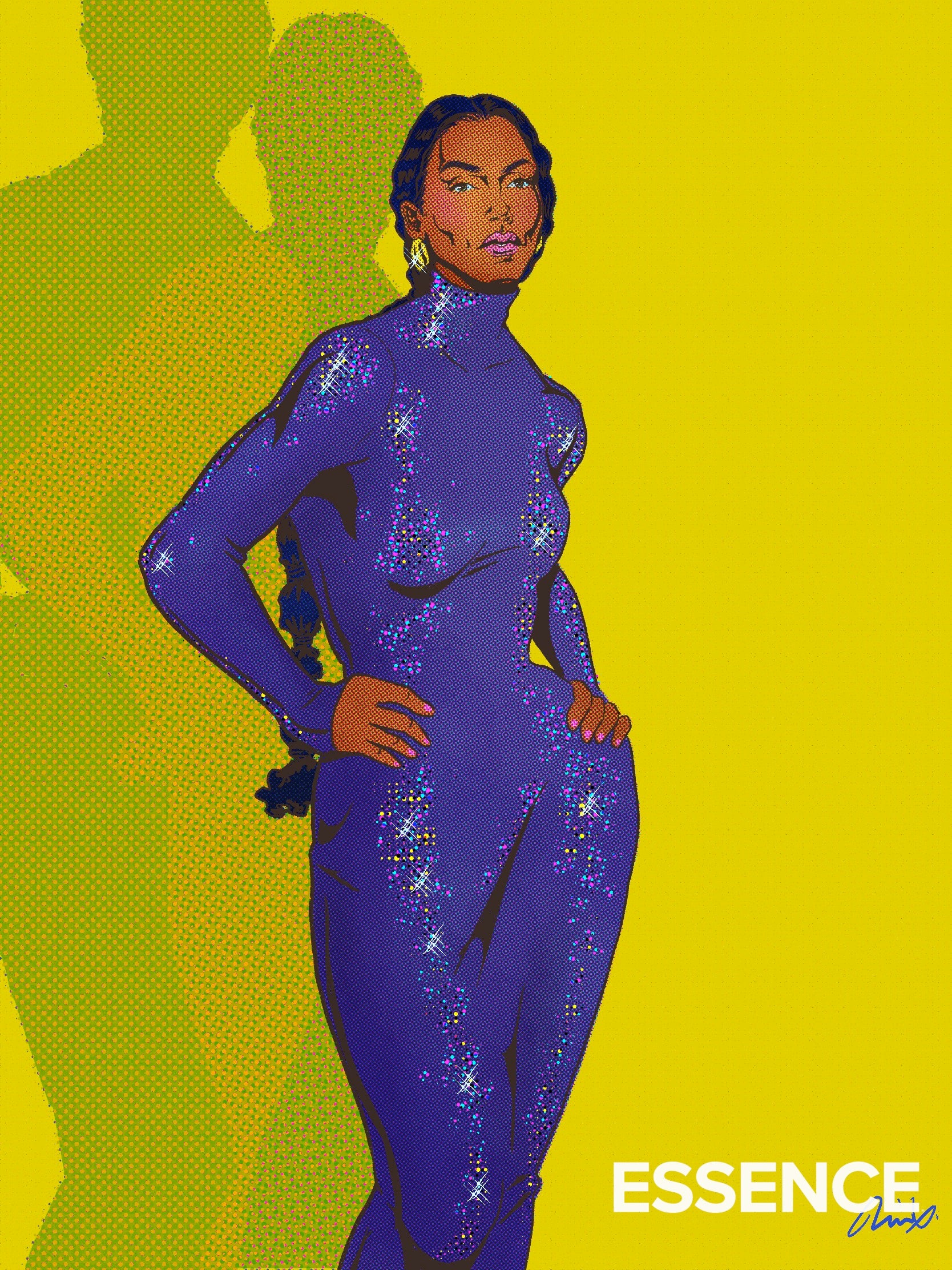
That’s what’s always been most important to Bassett—who now ranks as one of the highest-paid actresses of color on television, as a result of her lead role on the procedural first-responder series 9-1-1. Calling the achievement “wonderful,” she says it’s not something she thinks about in the day-to-day of life. Still, she adds, “As RiRi said, ‘Pay me what you owe me.’”
“We all should be compensated fairly, and that was one of my mantras,” Bassett recalls of her early career days, when she lived in a rent-controlled apartment in Harlem and took roles where she could. “I would say to myself, I want to work. I want to work consistently, and I want to be paid fairly, and that has happened.”
Fair looks different to Bassett than it might to another Academy Award–nominated actress whose work has also garnered a Golden Globe Award, a Screen Actors Guild Award and seven Primetime Emmy nominations. “Listen, even after What’s Love, I’ve done projects where you’re getting paid the minimum,” she reveals. “The whole thing, they’re going to pay you $5,000. I think I did that last year. I’ve directed where it’s like, are they even paying me? I don’t know. I’m not checking for it, because I’m learning. It’s not always about money. Sometimes it is, and a lot of times I’ve turned things down because the project’s not right, or the situation’s not right, or the story’s not right. You always want the muse to show up. As they say, all money ain’t good money.”
In her latest role, we’ll see Bassett step up as the mother figure to a nation when she reprises the character of Ramonda in Black Panther: Wakanda Forever. Tending to her own grief and that of her daughter, Ramonda also has to ease the concerns of her people and ensure their protection from neighboring attacks. “It’s quite a bit, emotionally, that Ramonda has to deal with,” Bassett says. “In the midst of all this loss, she has to find that strength to comfort and lead.”
In real life, Bassett and the rest of the cast faced a similar emotional plight as they worked to deliver a sophomore effort that would match the expectations set by the overwhelmingly positive response to Black Panther—while still grappling with the sadness of Chadwick Boseman’s absence.
“There are these two things that we were dealing with: the loss of our leader and trying to meet the expectations of an audience,” Bassett says, noting she felt butterflies her first day back on set. “The mantle is monumental, but it’s not so heavy that we can’t accomplish what we all gathered together to do.”
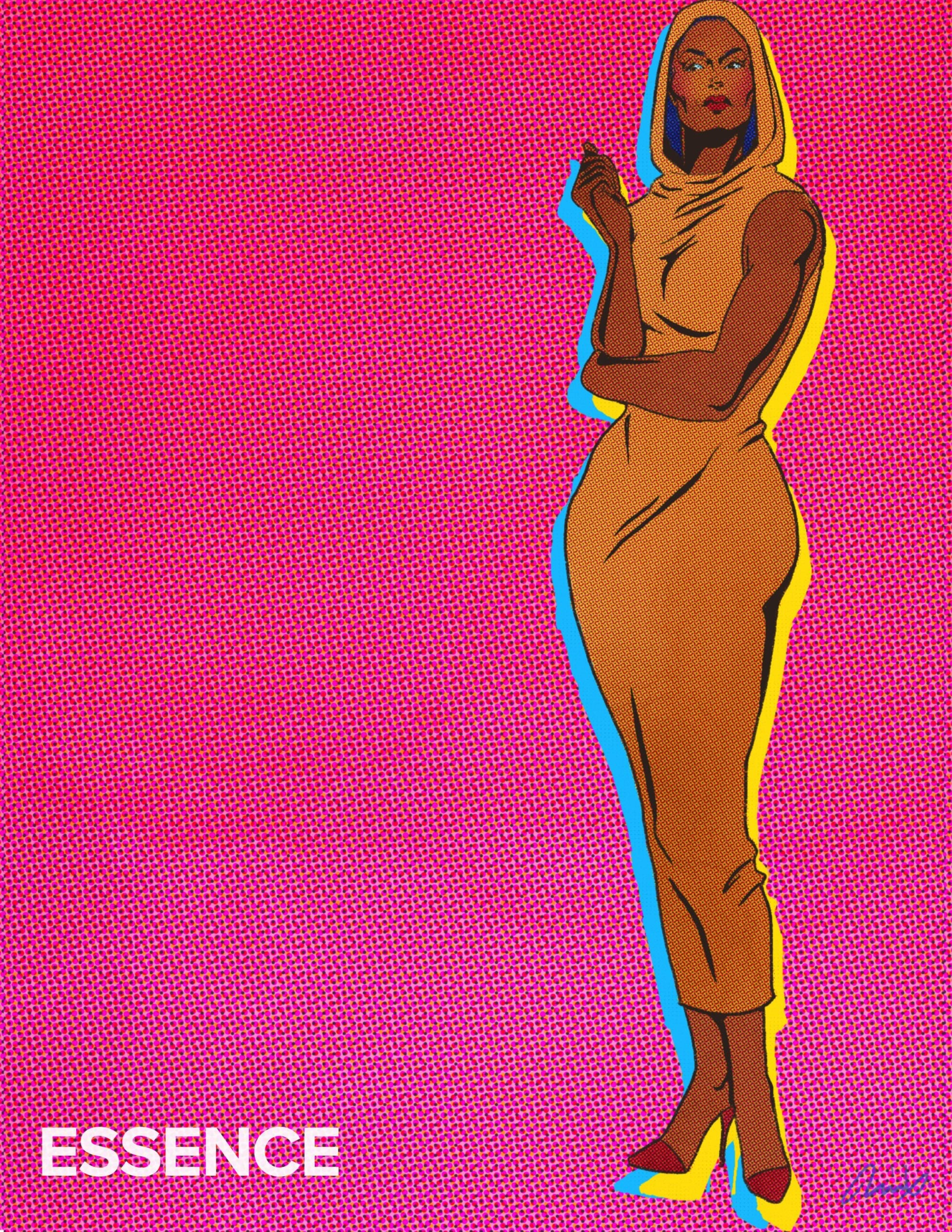
The cast and crew agreed to adopt French hours during filming—which meant working nonstop for 10 straight hours, five to six days a week, so no one would lose momentum. Instead of breaking for lunch, Bassett explains, you grab a bite when you can and wrap up the action at seven or eight in the evening.
Director Ryan Coogler recalls how easily Bassett acclimated to this shoot schedule. “She was always there on time and right where you needed her to be,” he says. “She has an incredible positive energy to her and a phenomenal work ethic. Sometimes she would hang out on set in between setups and was always game for anything. She’s been doing it at this level for longer than anybody on set, but you wouldn’t be able to tell by her demeanor. She’s always excited and ready to go. Ready to do her stunt work, ready to do the big dialogue scenes, ready to do the easy stuff. She leads by example.”
As for her take on the experience, Bassett says simply, “I would try to make the best of it. Play some music, add a glass of wine to that after we wrapped, and then get some rest for another early pickup. If you have a day off, you go to a museum or the park, or go for a bike ride—something like that to just relax, to chill.”
Taking that time for herself isn’t always easy for Bassett. Her work ethic is defined by her upbringing, which she describes as working- class. “I think a part of me, or part of us as Black women, is that we become used to the stress of life,” she reflects. “It can become so pervasive, so everyday, that it’s just what it is—with the work, and the husband, and the family and all that. That pulls on you.”
Having a husband who shares her vocation helps tremendously, Bassett admits. They recently celebrated 25 years of marriage. “He understands the struggles and frustrations and the process of creating a character, of having to leave home and be away from your family for months or weeks at a time,” she says. Yet she appreciates his ability to enjoy the finer things. “I think Courtney’s into the soft life,” she jokes. “He’s going to the chiropractor and getting foot massages. I’m like, ‘I need to catch up with you, learn from you. You are doing your self care, brother.’”
She doesn’t say it, but having a partner who champions her career, rather than seeing her as competition, is undoubtedly also a key part of their success equation. Vance still remembers the first time he saw the woman he didn’t yet know would be his wife perform: She was acting in August Wilson’s play Joe Turner’s Come and Gone.
“She’s sitting backstage for two and a half hours—and came on in the last half hour of a three-hour play, and completely changed the direction of the play,” he recalls. “That’s so hard to do, to hold on to all of that energy for the entire show.” Reflecting on the entirety of her career, he adds, “I don’t know anybody else like her. She’s once in a generation; once in a lifetime. I always tell her that the world is waiting for her Oscar, so that we can lift her up 30 years past when we should have.”
Until that day comes, Bassett remains fulfilled by the work she does and the passion it still fuels inside of her. “I’m proud of a career that is consistent and ongoing,” she says. “You know that feeling when you first fall in love? I’m proud that I still feel that way about what I do, about my art and my artistry, and that it’s appreciated.”
Illustrations by Darius X. Moreno
This article appears in the November/December 2022 issue of ESSENCE, on newsstands November 8.
